Spread the love
Leopard geckos, like many reptiles, have distinct sleep patterns that differ from those of mammals. Here’s a detailed breakdown of their sleep habits.
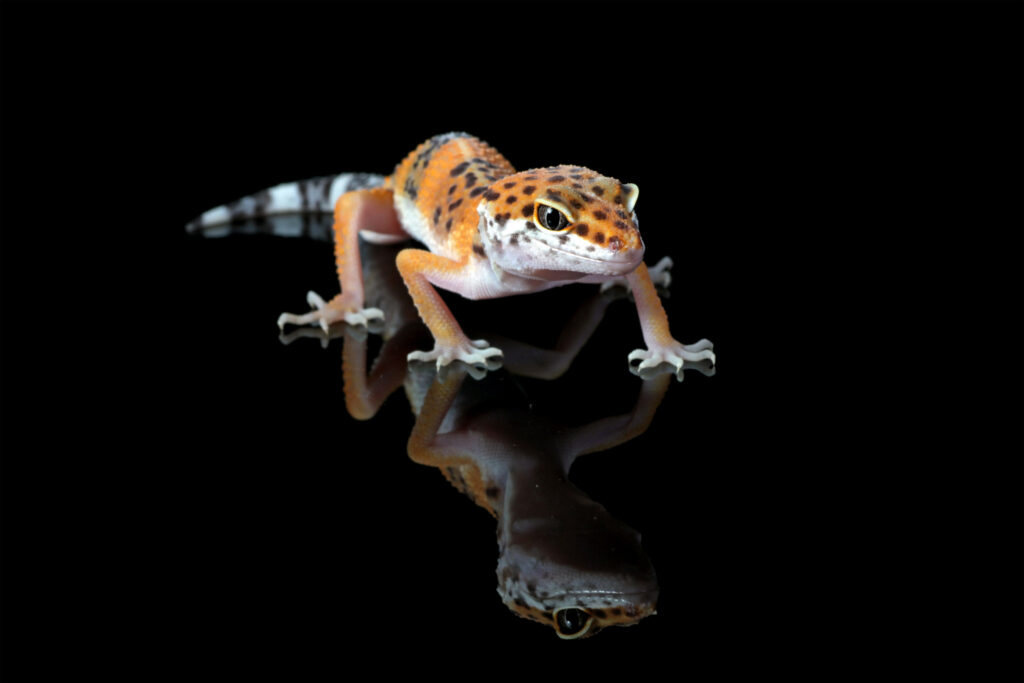
1. Nocturnal Nature.
Leopard geckos are nocturnal creatures, meaning they are most active during the night and sleep during the day. This behavior is an adaptation to their natural habitat, where they avoid the harsh daytime heat by resting in cool, shaded areas.
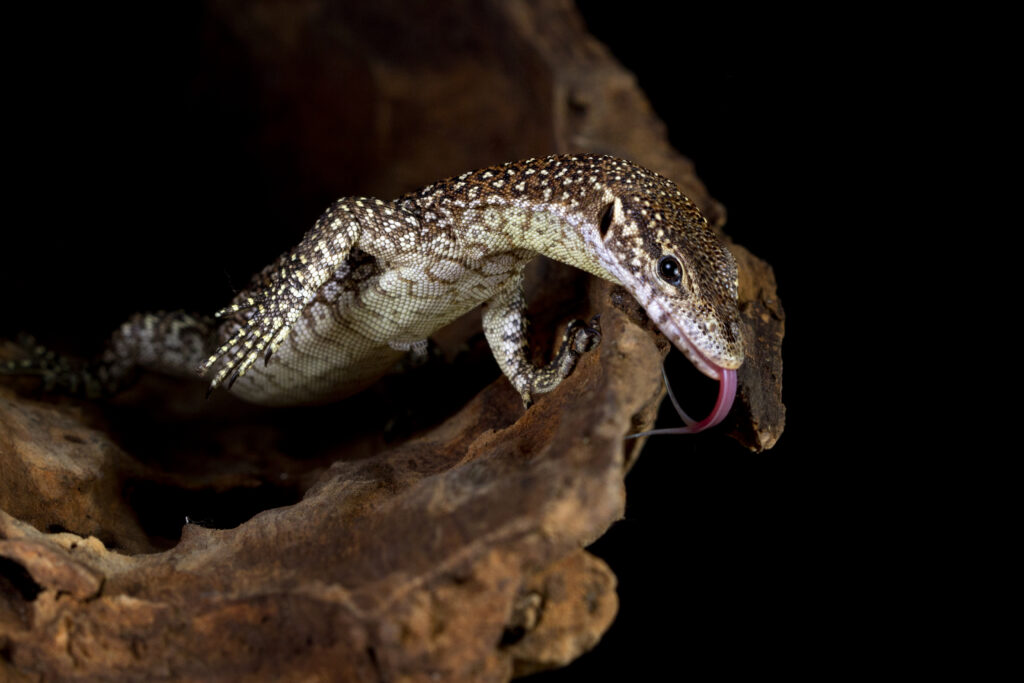
2. Sleep Duration.
- Average Sleep Time: Leopard geckos typically sleep for about 12 to 14 hours a day. This duration can vary depending on factors such as age, health, environment, and season.
- Juveniles vs. Adults: Juvenile geckos may sleep less than adults due to their higher energy needs and more frequent feeding requirements. Adult geckos may have more prolonged periods of rest.
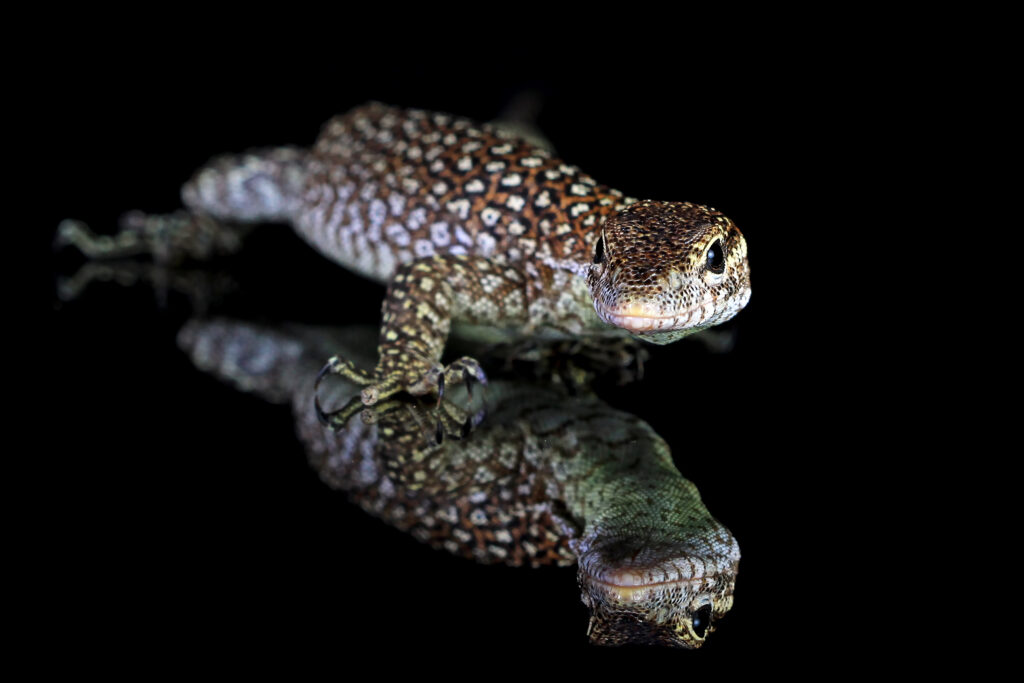
3. Sleep Patterns.
- Light vs. Deep Sleep: Leopard geckos can experience different sleep stages, including light and deep sleep. However, they do not experience REM (Rapid Eye Movement) sleep as mammals do.
- Resting Position: During sleep, leopard geckos often assume a relaxed position with their eyes closed, lying flat on their bellies or slightly curled up in a sheltered spot within their enclosure.
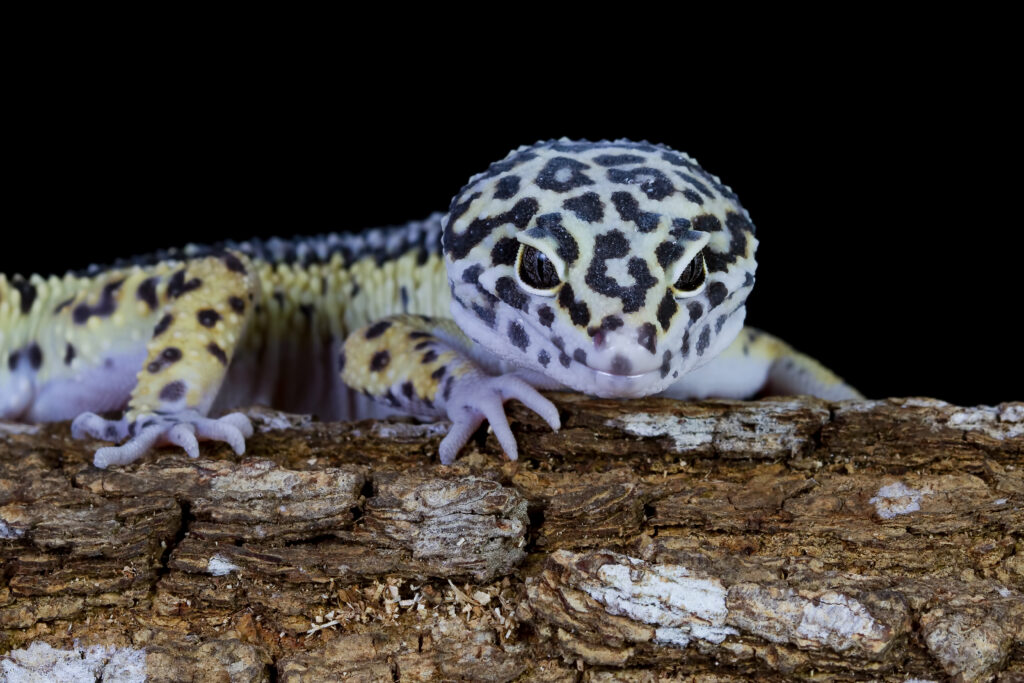
4. Environmental Factors.
- Temperature: Being ectothermic (cold-blooded), the sleep patterns of leopard geckos are influenced by the temperature of their environment. If the temperature is too cold, they might sleep more as their metabolism slows down. Conversely, if it’s too warm, they might become more restless.
- Lighting: Since they are nocturnal, the light cycle in their environment should mimic natural conditions with a clear distinction between day and night. This helps regulate their sleep-wake cycle.
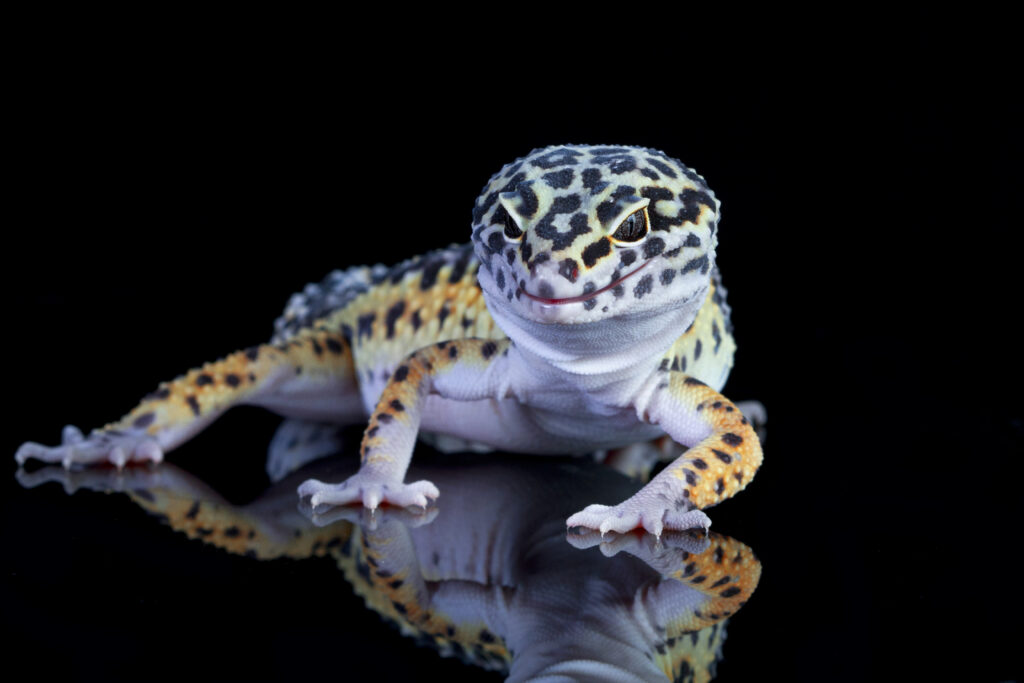
5. Seasonal Variations.
- Brumation: During colder months, leopard geckos may enter a state of brumation, which is similar to hibernation. During brumation, they significantly reduce their activity levels, and their sleep duration can increase substantially. They may sleep for long periods, waking only occasionally.
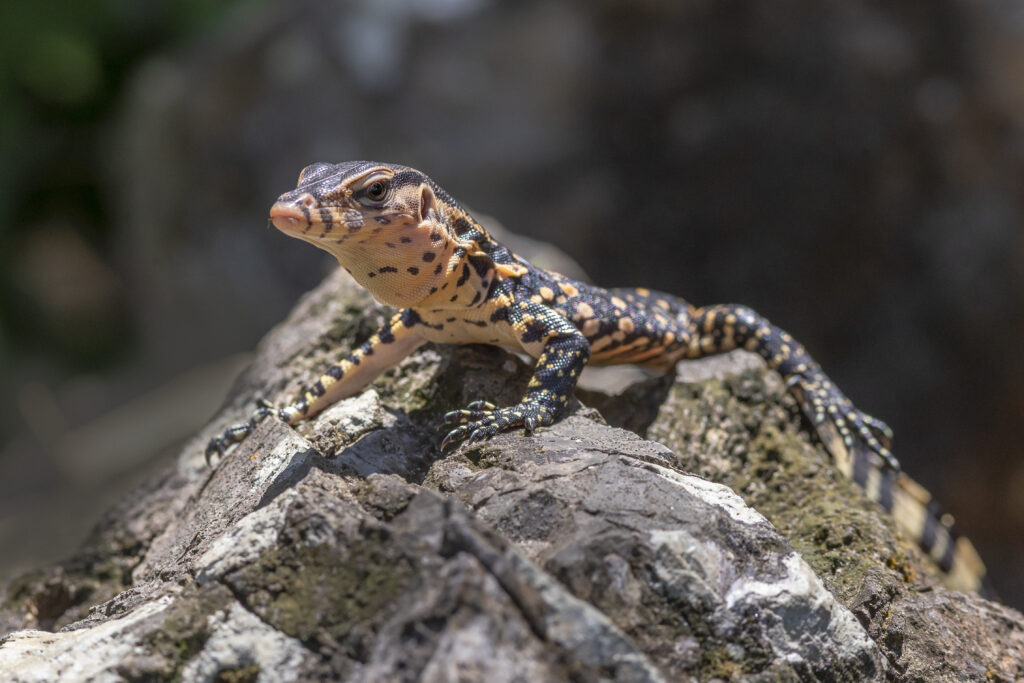
6. Health and Sleep.
- Signs of Healthy Sleep: A healthy leopard gecko will have consistent sleep patterns and be active and alert during the night. Lack of sleep or irregular sleep patterns could indicate health issues, such as stress, illness, or improper environmental conditions.
- Stress Factors: Stress can disrupt a leopard gecko’s sleep. Factors like a new environment, loud noises, improper handling, or inadequate hiding spots can cause stress and affect their sleep quality.

7. Behavioral Indicators.
- Sleep-Wake Transition: Leopard geckos often become more active at dusk, as they transition from sleep to their active period. You’ll notice them emerging from their hiding spots, stretching, and beginning to explore their enclosure.
- Impact of Feeding: Feeding schedules can influence sleep. Geckos may become more active around feeding times, but a well-fed gecko will often retreat to sleep soon after eating.

8. Importance of Sleep.
- Growth and Health: Adequate sleep is essential for the overall well-being of leopard geckos. It allows them to conserve energy, grow, and maintain a strong immune system.

Understanding and accommodating these sleep patterns is crucial for keeping a leopard gecko healthy and happy. Ensuring they have a proper environment that mimics their natural habitat, with appropriate temperature gradients and hiding spots, will support their natural sleep behaviors.
Must Check This Post
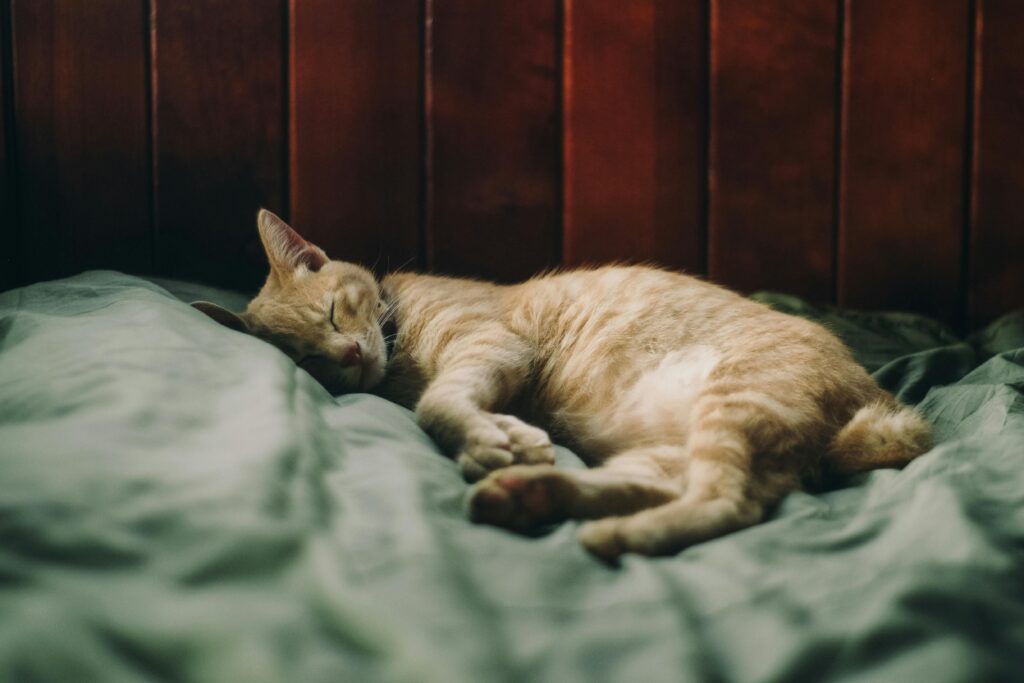
What Your Cat’s Sleeping Position Says About Them


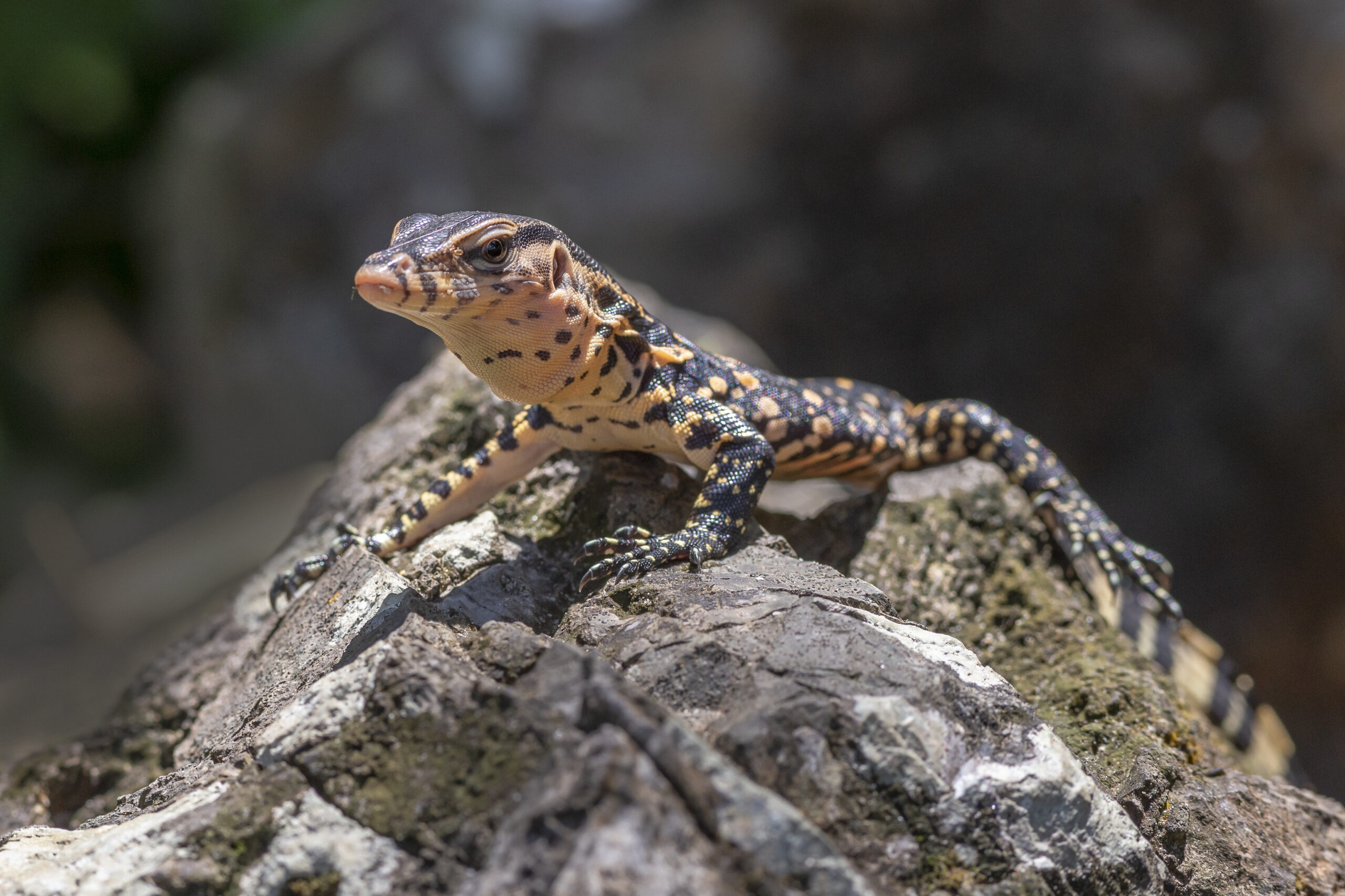
2 thoughts on “How Long Do Leopard Geckos Sleep”